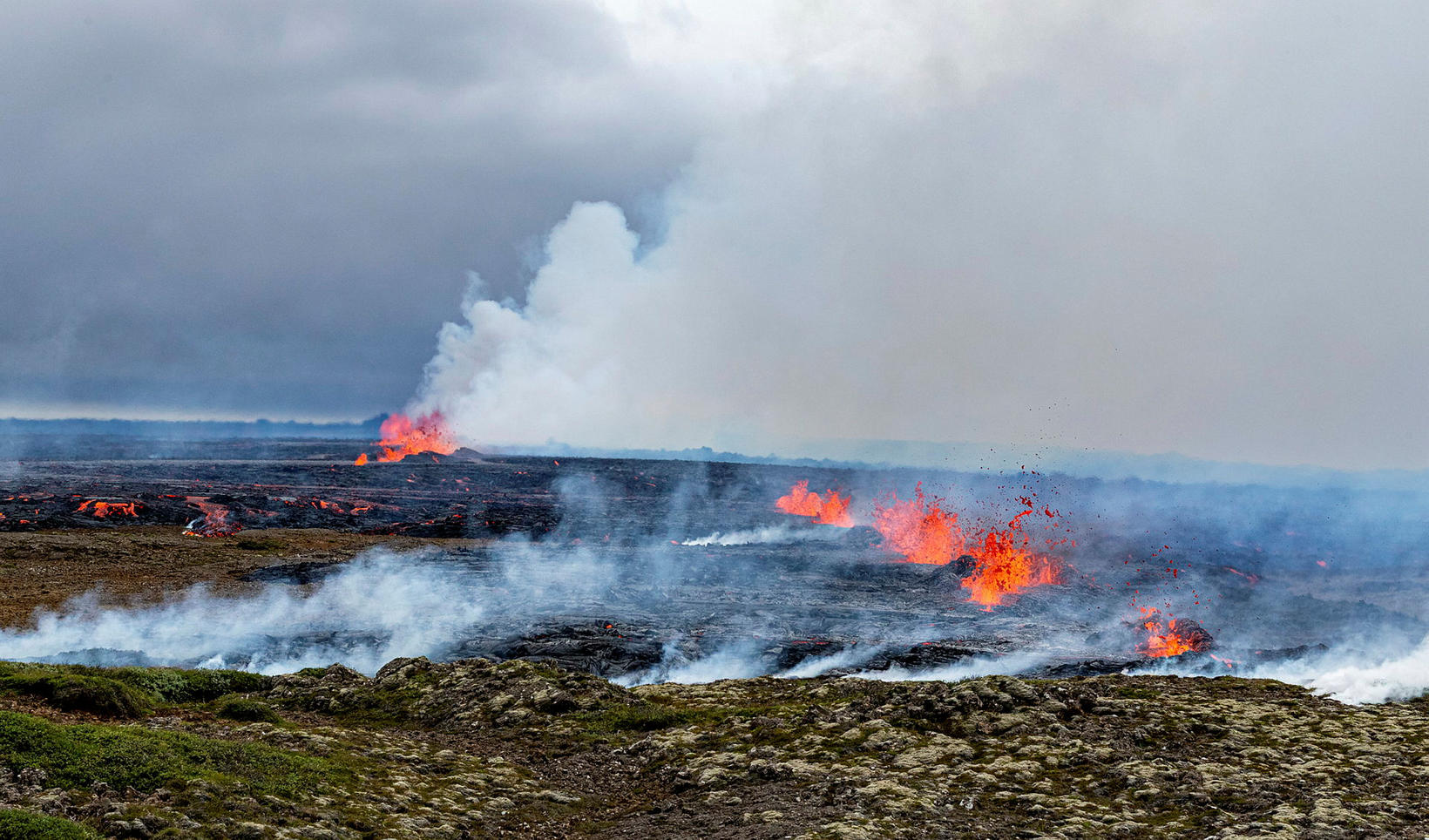The volcanic eruption on the Reykjanes Peninsula has remained stable since this morning, with continued activity from craters near the center of the fissure.
This was confirmed by Jóhanna Malen Skúladóttir, a natural hazards specialist at the Icelandic Meteorological Office, in an interview with mbl.is.
“I’d say the tremor gradually decreased right up until morning, and since around 8 or 9 a.m., it has remained fairly stable,” Skúladóttir said.
“These kinds of eruptions behave in their own way. I think it’s absolutely impossible to predict whether it will continue or stop soon — it’s pure guesswork,” she replied when asked how long the eruption might last.
Volcanic haze to linger over the weekend
Earlier today, it was reported that volcanic haze had reached the capital area. Skúladóttir explained that weather conditions over the past few days — calm winds, sunshine, and warm temperatures — have been ideal for the formation of haze.
“As a result, volcanic haze is present over large parts of the country, especially in the west and north. It’s somewhat persistent due to the light winds and even reached the capital area today, where it still lingers.”
She added that the haze is expected to remain over the capital area throughout the weekend.
Volcanic haze contains pollutants that can transform into substances such as sulfate (SO₄) and sulfuric acid. Therefore, it often goes undetected by standard sulfur dioxide (SO₂) monitoring, but elevated levels of fine particulate matter (PM) can indicate its presence.
The natural hazards specialist advises people to monitor air quality in their area. Forecasting the haze is difficult, as it forms not directly at the eruption site but higher in the atmosphere.
“If someone is sensitive and experiencing symptoms, they should take care and stay indoors,” said Jóhanna, adding that young children should not sleep outdoors in prams if the haze is thick.
“It’s just good to err on the side of caution.”









